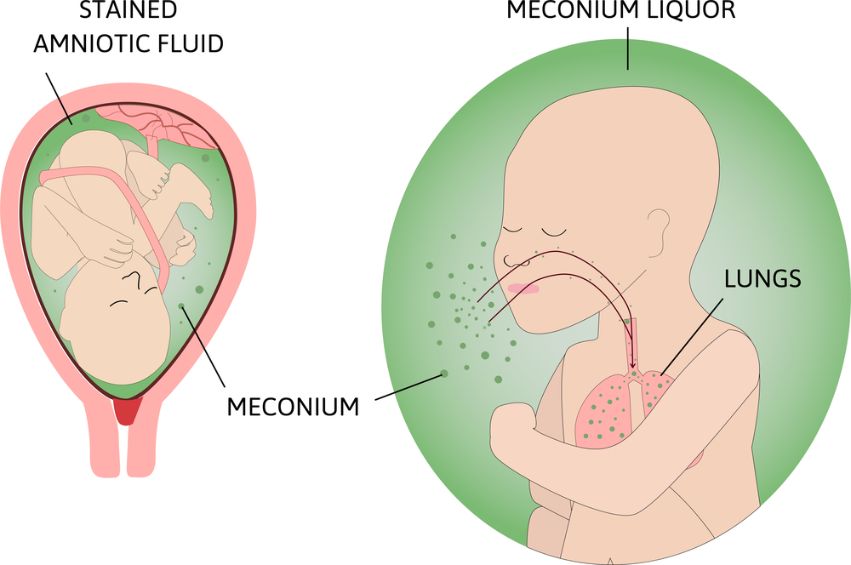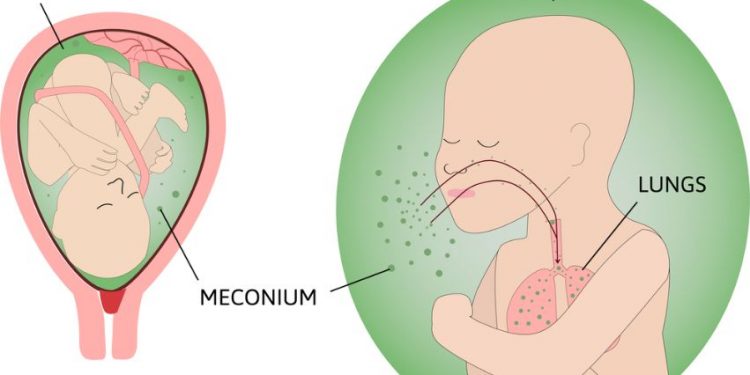Meconium is a type of stool that healthy babies produce within 24-48 hours after birth. It consists of amniotic fluid, mucus, fine hair, bile and shedding skin cells. It typically appears green, brown or yellow.
Babies with meconium ileus have an abnormally thick and sticky secretion that sticks to the lining of the small intestine, blocking it. This happens in about 10 to 20% of infants with cystic fibrosis.
This obstruction can cause a baby to become very sick. A baby with meconium ileus may not be able to absorb enough formula or breast milk to keep them hydrated. If left untreated, it can lead to a bowel perforation, or hole in the intestine.
It can also affect your baby’s lungs and heart. When the meconium reaches parts of the lungs that have not been nourished, it can cause serious problems. The meconium can cause pulmonary edema (excess fluid accumulation in the lung tissue), inflammation, vasoconstriction (blood vessel constriction in the lungs), and bronchoconstriction (narrowing of the airways).
The first sign that your baby has meconium ileus is when they have trouble passing their stool within 48 hours of birth. This is an emergency.
When a baby has meconium ileus, the doctor will try to wash out the blockage by using an enema. An enema will usually contain a special drug that breaks down and softens the thickened meconium. This helps your baby’s intestines move the meconium out of their rectum and into their colon.

In some cases, the doctor will use a medical imaging procedure called fluoroscopy to help see the meconium inside of your baby’s intestine. This lets them see how well the enema works to flush out the thickened meconium.
If the enema doesn’t clear out the blockage, your baby’s doctor will recommend surgery. Surgeons can clear out the meconium ileus and fix other problems that may be causing it.
They can also remove the blockage in your baby’s intestine to create a new stoma, or hole, in their bowel. This surgery is called a laparotomy.
Meconium ileus can also be an early sign of cystic fibrosis, and it may occur in newborns without the disease. It can be especially common in premature infants who have had medications to slow down labor.
Symptoms of meconium ileus include abdominal distension, bilious vomiting and difficulty moving the stool. It can happen in preterm babies and those with other gastrointestinal problems, such as a cleft palate.
It is also the earliest symptom of cystic fibrosis in about 10% of children with this hereditary disorder. This means it’s very important to have an ultrasound scan during pregnancy to detect meconium ileus, so the condition can be diagnosed before your baby is born.
The most common symptoms of meconium ileus are abdominal distension, bilious vomiting and difficult movement of the stool. These symptoms can happen in preterm babies and those with more serious gastrointestinal problems, such as a bowel cleft or a hole in the intestine.









